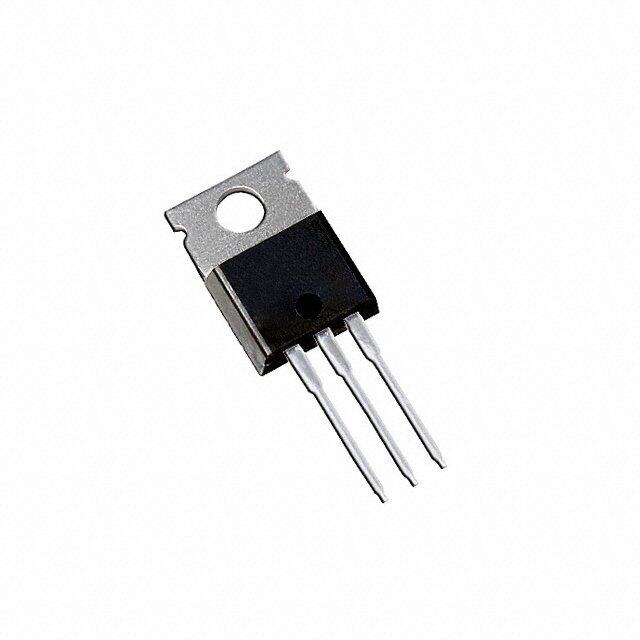ICGOO在线商城 > 分立半导体产品 > 晶体管 - FET,MOSFET - 单 > SI3457CDV-T1-GE3
- 型号: SI3457CDV-T1-GE3
- 制造商: Vishay
- 库位|库存: xxxx|xxxx
- 要求:
| 数量阶梯 | 香港交货 | 国内含税 |
| +xxxx | $xxxx | ¥xxxx |
查看当月历史价格
查看今年历史价格
SI3457CDV-T1-GE3产品简介:
ICGOO电子元器件商城为您提供SI3457CDV-T1-GE3由Vishay设计生产,在icgoo商城现货销售,并且可以通过原厂、代理商等渠道进行代购。 SI3457CDV-T1-GE3价格参考。VishaySI3457CDV-T1-GE3封装/规格:晶体管 - FET,MOSFET - 单, 表面贴装 P 沟道 30V 5.1A(Tc) 2W(Ta),3W(Tc) 6-TSOP。您可以下载SI3457CDV-T1-GE3参考资料、Datasheet数据手册功能说明书,资料中有SI3457CDV-T1-GE3 详细功能的应用电路图电压和使用方法及教程。
Vishay Siliconix的SI3457CDV-T1-GE3是一款N沟道增强型MOSFET,广泛应用于多种电力电子设备中。其主要应用场景包括: 1. 电源管理:该MOSFET适用于各种开关电源(SMPS)、直流-直流转换器(DC-DC converters)和电压调节模块(VRMs)。它能够高效地进行电流切换,降低功耗,提高电源转换效率。 2. 电机驱动:在电机控制电路中,SI3457CDV-T1-GE3可以用于驱动小型直流电机、步进电机或无刷直流电机。它的低导通电阻(Rds(on))有助于减少发热,延长器件寿命。 3. 负载开关:作为负载开关使用时,这款MOSFET能够在不同工作模式下快速响应,确保电路的安全性和稳定性。它可以保护下游电路免受过流、短路等异常情况的影响。 4. 电池管理系统(BMS):在便携式电子产品如智能手机、平板电脑以及电动工具的电池管理中,MOSFET起到关键作用。它可以帮助实现精确的充电控制和放电保护功能。 5. 通信与网络设备:在网络路由器、交换机和其他通信基础设施中,SI3457CDV-T1-GE3可用于信号调理、功率分配等任务,保证数据传输的可靠性和效率。 6. 消费类电子产品:从家用电器到音频设备,许多消费类产品内部都集成了类似的MOSFET来优化性能并降低成本。例如,在电视、音响系统中用于音频放大器的电源部分。 总之,SI3457CDV-T1-GE3凭借其优异的电气特性、紧凑的封装形式及良好的散热能力,在众多领域展现出卓越的应用价值。
| 参数 | 数值 |
| 产品目录 | |
| ChannelMode | Enhancement |
| Ciss-输入电容 | 450 pF |
| 描述 | MOSFET P-CH 30V 5.1A 6-TSOPMOSFET 30V 5.1A 3.0W 74mohm @ 10V |
| 产品分类 | FET - 单分离式半导体 |
| FET功能 | 逻辑电平门 |
| FET类型 | MOSFET P 通道,金属氧化物 |
| Id-ContinuousDrainCurrent | 5.1 A |
| Id-连续漏极电流 | 5.1 A |
| 品牌 | Vishay / SiliconixVishay Siliconix |
| 产品手册 | http://www.vishay.com/doc?68602 |
| 产品图片 |
|
| rohs | 符合RoHS无铅 / 符合限制有害物质指令(RoHS)规范要求 |
| 产品系列 | 晶体管,MOSFET,Vishay / Siliconix SI3457CDV-T1-GE3TrenchFET® |
| 数据手册 | |
| 产品型号 | SI3457CDV-T1-GE3SI3457CDV-T1-GE3 |
| Pd-PowerDissipation | 2 W |
| Pd-功率耗散 | 2 W |
| Qg-GateCharge | 10 nC |
| Qg-栅极电荷 | 10 nC |
| RdsOn-Drain-SourceResistance | 74 mOhms |
| RdsOn-漏源导通电阻 | 74 mOhms |
| Vds-Drain-SourceBreakdownVoltage | 30 V |
| Vds-漏源极击穿电压 | - 30 V |
| Vgs-Gate-SourceBreakdownVoltage | +/- 20 V |
| Vgs-栅源极击穿电压 | 20 V |
| Vgsth-栅源极阈值电压 | - 3 V |
| 上升时间 | 80 ns |
| 下降时间 | 12 ns |
| 不同Id时的Vgs(th)(最大值) | 3V @ 250µA |
| 不同Vds时的输入电容(Ciss) | 450pF @ 15V |
| 不同Vgs时的栅极电荷(Qg) | 15nC @ 10V |
| 不同 Id、Vgs时的 RdsOn(最大值) | 74 毫欧 @ 4.1A,10V |
| 产品种类 | MOSFET |
| 供应商器件封装 | 6-TSOP |
| 其它名称 | SI3457CDV-T1-GE3-ND |
| 典型关闭延迟时间 | 20 ns |
| 功率-最大值 | 3W |
| 包装 | 带卷 (TR) |
| 商标 | Vishay / Siliconix |
| 安装类型 | 表面贴装 |
| 安装风格 | SMD/SMT |
| 封装 | Reel |
| 封装/外壳 | 6-TSOP(0.065",1.65mm 宽) |
| 封装/箱体 | TSOP-6 |
| 工厂包装数量 | 3000 |
| 晶体管极性 | P-Channel |
| 最大工作温度 | + 150 C |
| 最小工作温度 | - 55 C |
| 标准包装 | 3,000 |
| 漏源极电压(Vdss) | 30V |
| 电流-连续漏极(Id)(25°C时) | 5.1A (Tc) |
| 通道模式 | Enhancement |
| 配置 | Single |
| 零件号别名 | SI3457BDV-T1-E3-S |


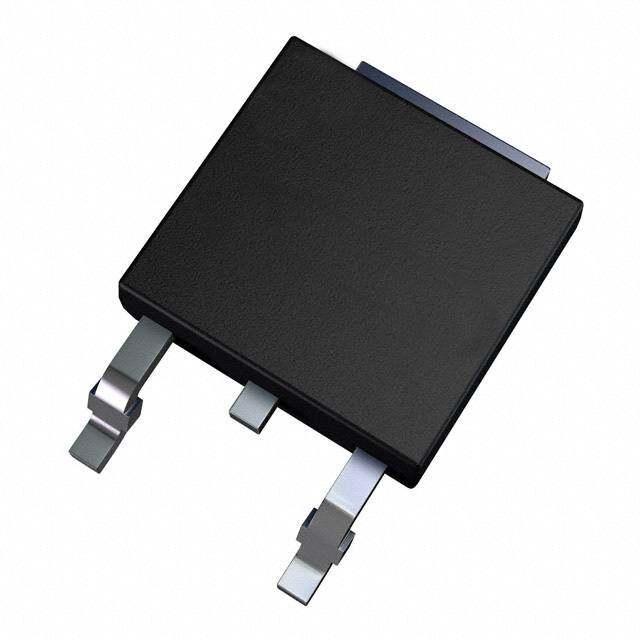

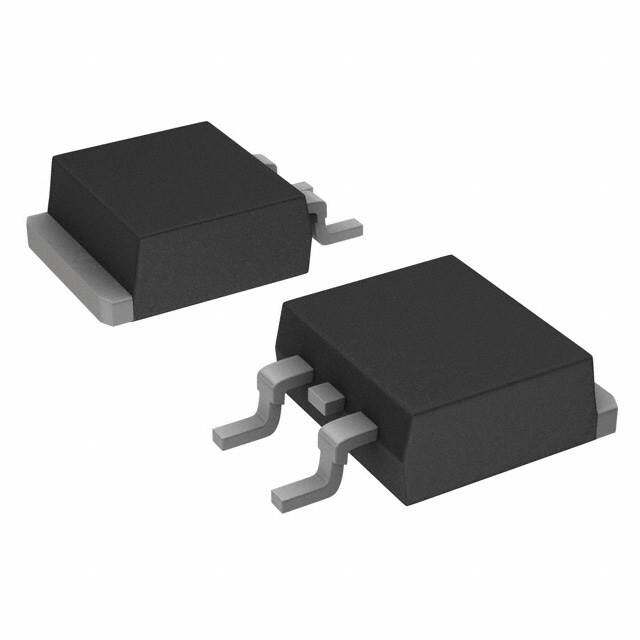
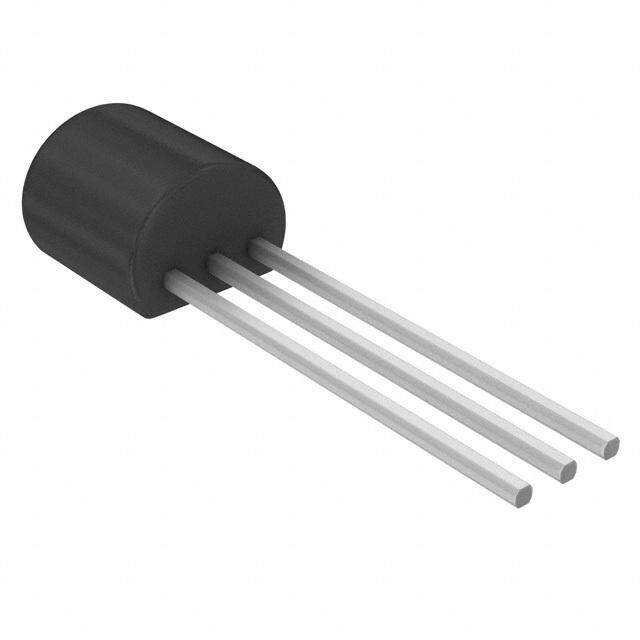

- 商务部:美国ITC正式对集成电路等产品启动337调查
- 曝三星4nm工艺存在良率问题 高通将骁龙8 Gen1或转产台积电
- 太阳诱电将投资9.5亿元在常州建新厂生产MLCC 预计2023年完工
- 英特尔发布欧洲新工厂建设计划 深化IDM 2.0 战略
- 台积电先进制程称霸业界 有大客户加持明年业绩稳了
- 达到5530亿美元!SIA预计今年全球半导体销售额将创下新高
- 英特尔拟将自动驾驶子公司Mobileye上市 估值或超500亿美元
- 三星加码芯片和SET,合并消费电子和移动部门,撤换高东真等 CEO
- 三星电子宣布重大人事变动 还合并消费电子和移动部门
- 海关总署:前11个月进口集成电路产品价值2.52万亿元 增长14.8%

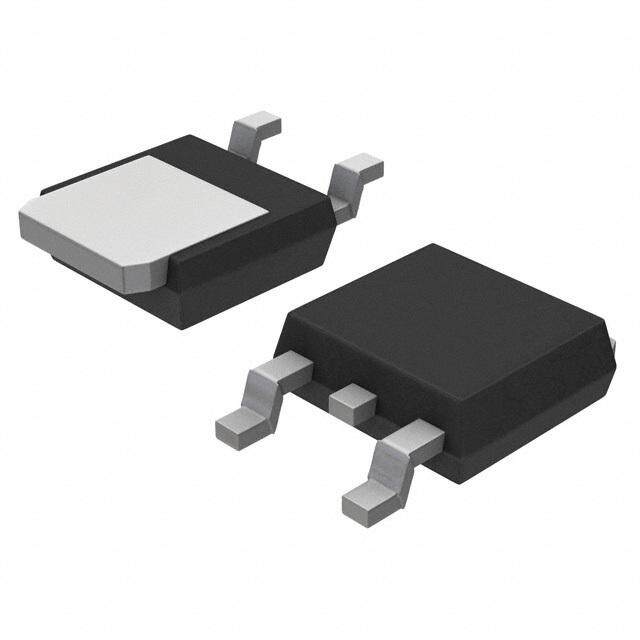
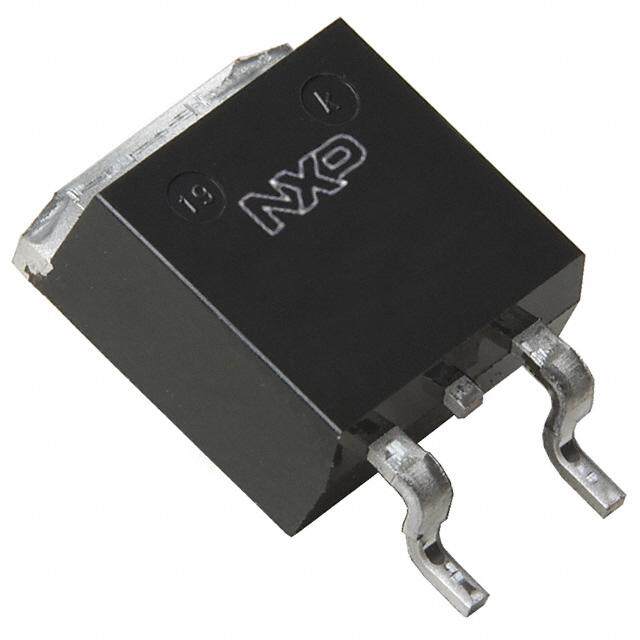

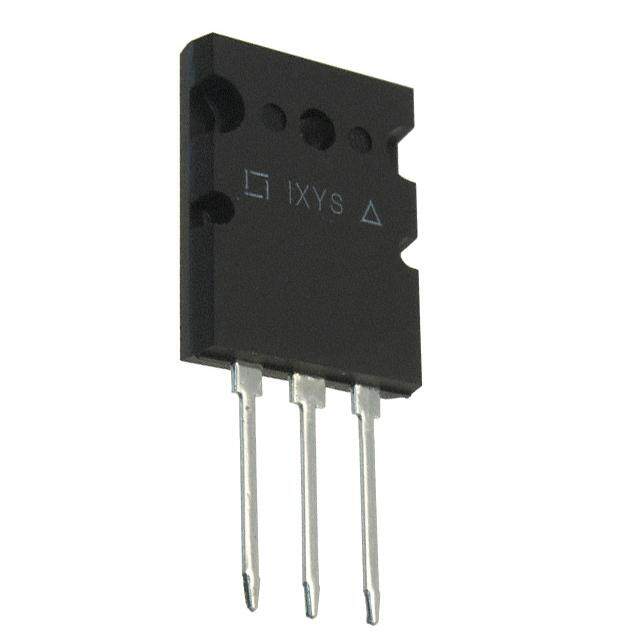


PDF Datasheet 数据手册内容提取
New Product Si3457CDV Vishay Siliconix P-Channel 30-V (D-S) MOSFET FEATURES PRODUCT SUMMARY • Halogen-free According to IEC 61249-2-21 VDS (V) RDS(on) (Ω) ID (A)a Qg (Typ.) Available 0.074 at VGS = - 10 V - 5.1 (cid:129) TrenchFET® Power MOSFET - 30 5.1 nC 0.113 at VGS = - 4.5 V - 4.1 APPLICATIONS (cid:129) Load Switch TSOP-6 Top View (4) S 1 6 3 mm 2 5 (3) G Marking Code 3 4 AT XXX Lot Traceability and Date Code 2.85 mm Part # Code (1, 2, 5, 6) D Ordering Information:Si3457CDV-T1-E3 (Lead (Pb)-free) Si3457CDV-T1-GE3 (Lead (Pb)-free and Halogen-free) P-Channel MOSFET ABSOLUTE MAXIMUM RATINGS T = 25 °C, unless otherwise noted A Parameter Symbol Limit Unit Drain-Source Voltage VDS - 30 V Gate-Source Voltage VGS ± 20 T = 25 °C - 5.1 C T = 70 °C - 4.1 Continuous Drain Current (T = 150 °C) C I J TA = 25 °C D - 4.1b, c TA = 70 °C - 3.3b, c A Pulsed Drain Current IDM - 20 TC = 25 °C - 2.5 Continuous Source-Drain Diode Current TA = 25 °C IS - 1.67b, c TC = 25 °C 3.0 Maximum Power Dissipation TTCA == 2750 °°CC PD 2.20.b0, c W TA = 70 °C 1.3b, c Operating Junction and Storage Temperature Range TJ, Tstg - 55 to 150 °C THERMAL RESISTANCE RATINGS Parameter Symbol Typical Maximum Unit Maximum Junction-to-Ambientb, d t ≤ 5 s RthJA 55 62.5 °C/W Maximum Junction-to-Foot (Drain) Steady State RthJF 34 41 Notes: a. Based on T = 25 °C. C b. Surface Mounted on 1" x 1" FR4 board. c. t = 5 s. d. Maximum under Steady State conditions is 110 °C/W. Document Number: 68602 www.vishay.com S09-0131-Rev. B, 02-Feb-09 1
New Product Si3457CDV Vishay Siliconix SPECIFICATIONS T = 25 °C, unless otherwise noted J Parameter Symbol Test Conditions Min. Typ. Max. Unit Static Drain-Source Breakdown Voltage VDS VGS = 0 V, ID = - 250 µA - 30 V VDS Temperature Coefficient ΔVDS/TJ - 31 ID = - 250 µA mV/°C VGS(th) Temperature Coefficient ΔVGS(th)/TJ 4.5 Gate-Source Threshold Voltage VGS(th) VDS = VGS, ID = - 250 µA - 1.0 - 3.0 V Gate-Source Leakage IGSS VDS = 0 V, VGS = ± 20 V ± 100 nA VDS = - 30 V, VGS = 0 V - 1 Zero Gate Voltage Drain Current IDSS µA VDS = - 30 V, VGS = 0 V, TJ = 55 °C - 10 On-State Drain Currenta ID(on) VDS ≤ - 5 V, VGS = - 10 V - 20 A VGS = - 10 V, ID = - 4.1 A 0.060 0.074 Drain-Source On-State Resistancea RDS(on) Ω VGS = - 4.5 V, ID = - 1.0 A 0.092 0.113 Forward Transconductancea gfs VDS = - 15 V, ID = - 4.1 A 8 S Dynamicb Input Capacitance Ciss 450 Output Capacitance Coss VDS = - 15 V, VGS = 0 V, f = 1 MHz 80 pF Reverse Transfer Capacitance Crss 63 VDS = - 15 V, VGS = - 10 V, ID = - 4.1 A 10 15 Total Gate Charge Q g 5.1 8 nC Gate-Source Charge Qgs VDS = - 15 V, VGS = - 4.5 V, ID = - 4.1 A 1.8 Gate-Drain Charge Qgd 2.5 Gate Resistance Rg f = 1 MHz 7 Ω Turn-On Delay Time td(on) 40 60 Rise Time tr VDD = - 15 V, RL = 4.6 Ω 80 120 Turn-Off Delay Time td(off) ID ≅ - 3.3 A, VGEN = - 4.5 V, Rg = 1 Ω 20 30 Fall Time tf 12 20 ns Turn-On Delay Time td(on) 5 10 Rise Time tr VDD = - 15 V, RL = 4.6 Ω 13 20 Turn-Off Delay Time td(off) ID ≅ - 3.3 A, VGEN = - 10 V, Rg = 1 Ω 20 30 Fall Time tf 10 15 Drain-Source Body Diode Characteristics Continuous Source-Drain Diode Current IS TC = 25 °C - 2.5 A Pulse Diode Forward Currenta ISM - 20 Body Diode Voltage VSD IS = - 3.3 A - 0.8 - 1.2 V Body Diode Reverse Recovery Time trr 20 30 ns Body Diode Reverse Recovery Charge Qrr 20 30 nC I = - 3.3 A, di/dt = 100 A/µs, T = 25 °C F J Reverse Recovery Fall Time ta 14 ns Reverse Recovery Rise Time tb 6 Notes: a. Pulse test; pulse width ≤ 300 µs, duty cycle ≤ 2 % b. Guaranteed by design, not subject to production testing. Stresses beyond those listed under “Absolute Maximum Ratings” may cause permanent damage to the device. These are stress ratings only, and functional operation of the device at these or any other conditions beyond those indicated in the operational sections of the specifications is not implied. Exposure to absolute maximum rating conditions for extended periods may affect device reliability. www.vishay.com Document Number: 68602 2 S09-0131-Rev. B, 02-Feb-09
New Product Si3457CDV Vishay Siliconix TYPICAL CHARACTERISTICS 25°C, unless otherwise noted 20 5 VGS = 10 thru 5 V 16 4 I - Drain Current (A)D 182 VGS = 4 V I - Drain Current (A)D 23 TTCC == 2- 55 5°C °C 4 1 VGS = 3 V TC = 125 °C 0 VGS = 2 V 0 0.0 0.5 1.0 1.5 2.0 2.5 3.0 0 1 2 3 4 VDS - Drain-to-Source Voltage (V) VGS- Gate-to-Source Voltage (V) Output Characteristics Transfer Characteristics 0.20 800 0.16 Ω) 600 sistance ( 0.12 VGS = 4.5 V nce (pF) Ciss e a n-R acit 400 O p - 0.08 Ca S(on) C - D VGS = 10 V 200 R 0.04 Coss Crss 0.00 0 0 4 8 12 16 20 0 5 10 15 20 25 30 ID - Drain Current (A) VDS - Drain-to-Source Voltage (V) On-Resistance vs. Drain Current and Gate Voltage Capacitance 10 1.6 ID = 4.1 A VGS = 10 V, ID = 4.1 V e (V) 8 1.4 Source Voltag 6 VDS = 15 V VDS = 24 V n-Resistancemalized) 1.2 VGS = 4.5 V, ID = 4.1 A ate-to- 4 - Oon)(Nor 1.0 G S( - D S R G 2 0.8 V 0 0.6 0 2 4 6 8 10 12 - 50 - 25 0 25 50 75 100 125 150 Qg - Total Gate Charge (nC) TJ - Junction Temperature (°C) Gate Charge On-Resistance vs. Junction Temperature Document Number: 68602 www.vishay.com S09-0131-Rev. B, 02-Feb-09 3
New Product Si3457CDV Vishay Siliconix TYPICAL CHARACTERISTICS 25°C, unless otherwise noted 100 0.25 ID = 4.1 A 0.20 A) Ω) e Current ( TJ = 150 °C esistance ( 0.15 - SourcS 10 TJ = 25 °C - On-Rn) 0.10 TJ = 125 °C I o S( D R 0.05 TJ = 25 °C 1 0.00 0 0.2 0.4 0.6 0.8 1.0 1.2 1.4 0 2 4 6 8 10 VSD - Source-to-Drain Voltage (V) VGS - Gate-to-Source Voltage (V) Source-Drain Diode Forward Voltage On-Resistance vs. Gate-to-Source Voltage 2.2 25 ID = 250 µA 2.0 20 V) 1.8 W) 15 V (GS(th) 1.6 Power( 10 1.4 5 1.2 0 - 50 - 25 0 25 50 75 100 125 150 0.001 0.01 0.1 1 10 100 1000 TJ - Temperature (°C) Time(s) Threshold Voltage Single Pulse Power 100 Limited by RDS(on)* 10 A) nt ( urre 100 µs C n 1 Drai 1 ms - D 10 ms I 0.1 100 ms 1s, 10 s TA = 25 °C BVDSS DC Single Pulse Limited 0.01 0.1 1 10 100 VDS- Drain-to-Source Voltage (V) * VGS minimum VGS at which RDS(on)isspecified Safe Operating Area www.vishay.com Document Number: 68602 4 S09-0131-Rev. B, 02-Feb-09
New Product Si3457CDV Vishay Siliconix TYPICAL CHARACTERISTICS 25°C, unless otherwise noted 6 4 5 3 ent (A) 4 W) ain Curr 3 Power ( 2 Dr - D 2 I 1 1 0 0 0 25 50 75 100 125 150 25 50 75 100 125 150 TC - Case Temperature (°C) TC- Case Temperature (°C) Current Derating* Power, Junction-to-Foot * The power dissipation P is based on T = 150 °C, using junction-to-case thermal resistance, and is more useful in settling the upper D J(max) dissipation limit for cases where additional heatsinking is used. It is used to determine the current rating, when this rating falls below the package limit. Document Number: 68602 www.vishay.com S09-0131-Rev. B, 02-Feb-09 5
New Product Si3457CDV Vishay Siliconix TYPICAL CHARACTERISTICS 25°C, unless otherwise noted 1 DutyCycle=0.5 nt e Transiance 0.2 ectiveImped 0.1 0.1 Notes: Effmal 0.05 PDM eder alizTh t1 Norm 0.02 1.DutyCyclet,2D= tt12 2.PerUnitBase=RthJA=90 °C/W 3.TJM- TA=PDMZthJA(t) SinglePulse 4.SurfaceMounted 0.01 10-4 10-3 10-2 10-1 1 10 100 1000 SquareWavePulseDuration(s) Normalized Thermal Transient Impedance, Junction-to-Ambient 1 DutyCycle=0.5 nt e 0.2 Transiance 0.1 ectiveImped 0.1 Effmal 0.05 eder zh aliT 0.02 m Nor SinglePulse 0.01 10-4 10-3 10-2 10-1 1 10 SquareWavePulseDuration(s) Normalized Thermal Transient Impedance, Junction-to-Foot Vishay Siliconix maintains worldwide manufacturing capability. Products may be manufactured at one of several qualified locations. Reliability data for Silicon Technology and Package Reliability represent a composite of all qualified locations. For related documents such as package/tape drawings, part marking, and reliability data, see www.vishay.com/ppg?68602. www.vishay.com Document Number: 68602 6 S09-0131-Rev. B, 02-Feb-09
Package Information Vishay Siliconix TSOP: 5/6−LEAD JEDEC Part N umber: MO-193C e1 e1 5 4 6 5 4 E1 E E1 E 1 1 2 3 2 3 -B- -B- e b 0.15 M C B A e b 0.15 M C B A 5-LEAD TSOP 6-LEAD TSOP -A- 4x 1 D 0.17 Ref R c A2 A R L 2 Gauge Plane Seating Plane Seating Plane L 0.08 C -C- A1 4x 1 (L1 ) MILLIMETERS INCHES Dim Min Nom Max Min Nom Max A 0.91 - 1.10 0.036 - 0.043 A1 0.01 - 0.10 0.0004 - 0.004 A2 0.90 - 1.00 0.035 0.038 0.039 b 0.30 0.32 0.45 0.012 0.013 0.018 c 0.10 0.15 0.20 0.004 0.006 0.008 D 2.95 3.05 3.10 0.116 0.120 0.122 E 2.70 2.85 2.98 0.106 0.112 0.117 E1 1.55 1.65 1.70 0.061 0.065 0.067 e 0.95 BSC 0.0374 BSC e 1 1.80 1.90 2.00 0.071 0.075 0.079 L 0.32 - 0.50 0.012 - 0.020 L 1 0.60 Ref 0.024 Ref L 2 0.25 BSC 0.010 BSC R 0.10 - - 0.004 - - 0 4 8 0 4 8 1 7 Nom 7 Nom ECN: C-06593-Rev. I, 18-Dec-06 DWG: 5540 Document Number: 71200 www.vishay.com 18-Dec-06 1
AN823 Vishay Siliconix (cid:1) Mounting LITTLE FOOT TSOP-6 Power MOSFETs Surface mounted power MOSFET packaging has been based on Since surface mounted packages are small, and reflow soldering integrated circuit and small signal packages. Those packages is the most common form of soldering for surface mount have been modified to provide the improvements in heat transfer components, “thermal” connections from the planar copper to the required by power MOSFETs. Leadframe materials and design, pads have not been used. Even if additional planar copper area is molding compounds, and die attach materials have been used, there should be no problems in the soldering process. The changed. What has remained the same is the footprint of the actual solder connections are defined by the solder mask packages. openings. By combining the basic footprint with the copper plane on the drain pins, the solder mask generation occurs automatically. The basis of the pad design for surface mounted power MOSFET A final item to keep in mind is the width of the power traces. The is the basic footprint for the package. For the TSOP-6 package absolute minimum power trace width must be determined by the outline drawing see http://www.vishay.com/doc?71200 and see amount of current it has to carry. For thermal reasons, this http://www.vishay.com/doc?72610 for the minimum pad footprint. minimum width should be at least 0.020 inches. The use of wide In converting the footprint to the pad set for a power MOSFET, you traces connected to the drain plane provides a low impedance must remember that not only do you want to make electrical path for heat to move away from the device. connection to the package, but you must made thermal connection and provide a means to draw heat from the package, and move it away from the package. REFLOW SOLDERING In the case of the TSOP-6 package, the electrical connections are very simple. Pins 1, 2, 5, and 6 are the drain of the MOSFET and are connected together. For a small signal device or integrated Vishay Siliconix surface-mount packages meet solder reflow circuit, typical connections would be made with traces that are reliability requirements. Devices are subjected to solder reflow as a 0.020 inches wide. Since the drain pins serve the additional test preconditioning and are then reliability-tested using function of providing the thermal connection to the package, this temperature cycle, bias humidity, HAST, or pressure pot. The level of connection is inadequate. The total cross section of the solder reflow temperature profile used, and the temperatures and copper may be adequate to carry the current required for the time duration, are shown in Figures 2 and 3. application, but it presents a large thermal impedance. Also, heat spreads in a circular fashion from the heat source. In this case the drain pins are the heat sources when looking at heat spread on the PC board. Figure 1 shows the copper spreading recommended footprint for the TSOP-6 package. This pattern shows the starting point for utilizing the board area available for the heat spreading copper. To create this pattern, a plane of copper overlays the basic pattern on pins 1,2,5, and 6. The copper plane connects the drain pins electrically, but more importantly provides planar copper to draw heat from the drain leads and start the process of spreading the heat so it can be dissipated into the ambient air. Notice that the planar copper is shaped like a “T” to move heat away from the drain leads in all directions. This pattern uses all the available area underneath the body for this purpose. 0.167 4.25 Ramp-Up Rate +6(cid:2)C/Second Maximum 0.074 Temperature @ 155 (cid:1) 15(cid:2)C 120 Seconds Maximum 1.875 0.014 0.122 0.35 3.1 Temperature Above 180(cid:2)C 70 − 180 Seconds 0.026 Maximum Temperature 240 +5/−0(cid:2)C 0.65 Time at Maximum Temperature 20 − 40 Seconds Ramp-Down Rate +6(cid:2)C/Second Maximum 0.049 0.049 0.010 1.25 1.25 0.25 FIGURE 1. Recommended Copper Spreading Footprint FIGURE 2. Solder Reflow Temperature Profile Document Number: 71743 www.vishay.com 27-Feb-04 1
AN823 Vishay Siliconix 10 s (max) 255 − 260(cid:2)C 1(cid:2)4(cid:2)C/s (max) 3-6(cid:2)C/s (max) 217(cid:2)C 140 − 170(cid:2)C 60 s (max) 3(cid:2)C/s (max) 60-120 s (min) Reflow Zone Pre-Heating Zone Maximum peak temperature at 240(cid:2)C is allowed. FIGURE 3. Solder Reflow Temperature and Time Durations THERMAL PERFORMANCE A basic measure of a device’s thermal performance is the On-Resistance vs. Junction Temperature junction-to-case thermal resistance, R(cid:1) , or the 1.6 jc junction-to-foot thermal resistance, R(cid:1)jf. This parameter is VGS = 4.5 V measured for the device mounted to an infinite heat sink and ID = 6.1 A is therefore a characterization of the device only, in other 1.4 e words, independent of the properties of the object to which the c n a doef vthicee T isS OmPo-u6n.ted. Table 1 shows the thermal performance esiistzed) 1.2 n-Rmali TABLE 1. − On)(Nor 1.0 o S( D Equivalent Steady State Performance—TSOP-6 r 0.8 Thermal Resistance R(cid:1)jf 30(cid:2)C/W 0.6 −50 −25 0 25 50 75 100 125 150 SYSTEM AND ELECTRICAL IMPACT OF TJ − Junction Temperature ((cid:2)C) TSOP-6 FIGURE 4. Si3434DV In any design, one must take into account the change in MOSFET r with temperature (Figure 4). DS(on) www.vishay.com Document Number: 71743 2 27-Feb-04
Application Note 826 Vishay Siliconix RECOMMENDED MINIMUM PADS FOR TSOP-6 0.099 (2.510) 9 3) 4 6) 1 2 6 2 1 0 0 6 0. 3. 0. 1. ( ( 8 9) 2 9 0 6 0. 0. ( 0.039 0.020 0.019 (1.001) (0.508) (0.493) Recommended Minimum Pads Dimensions in Inches/(mm) Return to Index Return to Index E T O N N O I T A C I L P P A www.vishay.com Document Number: 72610 26 Revision: 21-Jan-08
Legal Disclaimer Notice www.vishay.com Vishay Disclaimer ALL PRODUCT, PRODUCT SPECIFICATIONS AND DATA ARE SUBJECT TO CHANGE WITHOUT NOTICE TO IMPROVE RELIABILITY, FUNCTION OR DESIGN OR OTHERWISE. Vishay Intertechnology, Inc., its affiliates, agents, and employees, and all persons acting on its or their behalf (collectively, “Vishay”), disclaim any and all liability for any errors, inaccuracies or incompleteness contained in any datasheet or in any other disclosure relating to any product. Vishay makes no warranty, representation or guarantee regarding the suitability of the products for any particular purpose or the continuing production of any product. To the maximum extent permitted by applicable law, Vishay disclaims (i) any and all liability arising out of the application or use of any product, (ii) any and all liability, including without limitation special, consequential or incidental damages, and (iii) any and all implied warranties, including warranties of fitness for particular purpose, non-infringement and merchantability. Statements regarding the suitability of products for certain types of applications are based on Vishay’s knowledge of typical requirements that are often placed on Vishay products in generic applications. Such statements are not binding statements about the suitability of products for a particular application. It is the customer’s responsibility to validate that a particular product with the properties described in the product specification is suitable for use in a particular application. Parameters provided in datasheets and / or specifications may vary in different applications and performance may vary over time. All operating parameters, including typical parameters, must be validated for each customer application by the customer’s technical experts. Product specifications do not expand or otherwise modify Vishay’s terms and conditions of purchase, including but not limited to the warranty expressed therein. Except as expressly indicated in writing, Vishay products are not designed for use in medical, life-saving, or life-sustaining applications or for any other application in which the failure of the Vishay product could result in personal injury or death. Customers using or selling Vishay products not expressly indicated for use in such applications do so at their own risk. Please contact authorized Vishay personnel to obtain written terms and conditions regarding products designed for such applications. No license, express or implied, by estoppel or otherwise, to any intellectual property rights is granted by this document or by any conduct of Vishay. Product names and markings noted herein may be trademarks of their respective owners. © 2017 VISHAY INTERTECHNOLOGY, INC. ALL RIGHTS RESERVED Revision: 08-Feb-17 1 Document Number: 91000
Mouser Electronics Authorized Distributor Click to View Pricing, Inventory, Delivery & Lifecycle Information: V ishay: SI3457CDV-T1-E3 SI3457CDV-T1-GE3
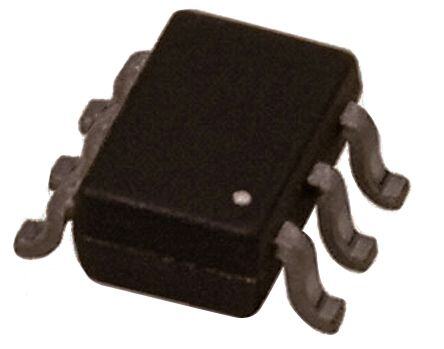
 Datasheet下载
Datasheet下载
